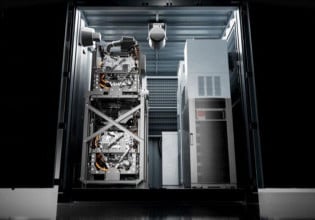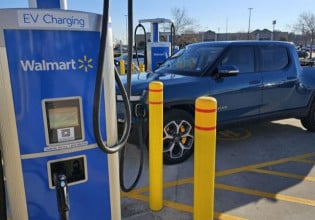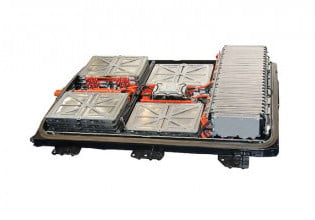$70 Million Round B for Energy Harvesting Powered Postage Stamp Sized Computer
One year on from revealing the very first engineering samples of the Wiliot chip behind closed doors at the National Retail Federation show in New York, Wiliot was demonstrating this technology in action at NRF 2020 in its own booth and on the stands of Avery Dennison, SATO Corporation and Aruba, a Hewlett Packard Enterprise company.
Vintage Investment Partners, Verizon Ventures, Maersk Growth, PepsiCo and NTT DOCOMO Ventures join the other top tier investors backing Wiliot's postage stamp sized computer. This latest investment round brings Wiliot's B Round of funding total up to $70 million as Wiliot preps for mass production of its battery-free Bluetooth sensor tags, powered by recycling radio waves.
"We have come a long way in the last year," said Tal Tamir, CEO of Wiliot. "Twelve months ago, conditions had to be perfect for the very first tags to work. Now we demonstrate Wiliot tags on bottles of wine, boxes of pizza and on envelopes. We are understanding how these tiny sensors embedded into products and packaging can change the way things are made, distributed, sold, used and recycled.
“By having a multiprocessor compute engine that powers itself, we have the security and flexibility to bring sensing and connectivity to things that previously couldn't be connected to the Internet of Things. Privacy is key if you are to connect products to the internet and nothing short of a system of this kind can make sure only the right people can see this information,” Tamir added.
This latest investment round was led by Vintage Investment Partners and will provide the resources for Wiliot to support its customers' pilot projects and the growing development of Wiliot's Cloud components. Alan Feld, Founder & Managing Partner of Vintage Investment Partners said "Investing in Wiliot was a clear choice considering the huge market for and disruptive power of their technology. They bring an experienced team with a proven ability to execute, as we saw when we invested in the founders' previous company."
Wiliot Cloud enables IoT applications integrated with billions of products to scale. It is also key to managing security and privacy. A machine learning component delivers 'Sensorless Sensing'. This eliminates expensive, bulky, on-tag sensors, by shifting the analytics to a cloud system that can learn and improve over time.
Wiliot is running an early access program as part of an invitation only, controlled release of pre-production versions of the product with over 20 world leading brands.
"Entrepreneurial partners like Wiliot are part of PepsiCo's ongoing global effort to work collaboratively with startups as we advance our ambitions to become faster, stronger, and better," said Jim Andrew, Executive Vice President, SodaStream, Beyond the Bottle, and New Ventures, PepsiCo. "Wiliot's deep technology solution offers numerous use case possibilities, including the potential to better serve our partners by getting the right product, to the right place, at the right time."
"Wiliot's technology will create an expansive opportunity for how products are tracked and industries are managed," said Merav Rotem Naaman, Managing Director of Verizon Ventures. "The company's cloud-connected, battery-free Bluetooth tag enables a process that is more cost-efficient and consumer-centric, connecting new classes of 'things' to the internet - at scale."
"As a pioneer of a new category of battery-free Bluetooth sensor tags, Wiliot has the potential to significantly grow the opportunity for connectivity services for a much bigger Internet of Things and this has a high affinity for the NTT Group's IoT business initiatives. Since we expect it can contribute to creating new values, we decided to invest in Wiliot," said Takayuki Inagawa, President and CEO, NTT DOCOMO Ventures.
"We see technologies like Wiliot's as being part of a shift in the way supply chains are organized," said Rasmus Winther Moelbjerg of Deloitte. "Historically, production and distribution were driven by forecasting models that could often be wrong. We see a future where 'demand signals' that communicate using existing infrastructure in real time from the store and even from consumers' homes as they use products. By having an active compute element built into products and packaging that can sense temperature and usage while securely managing a unique digital ID for each product, there is the potential to run much leaner supply chains, consumption based business model, that reduce capital employed and carbon footprint while delivering a better experience to customers."






